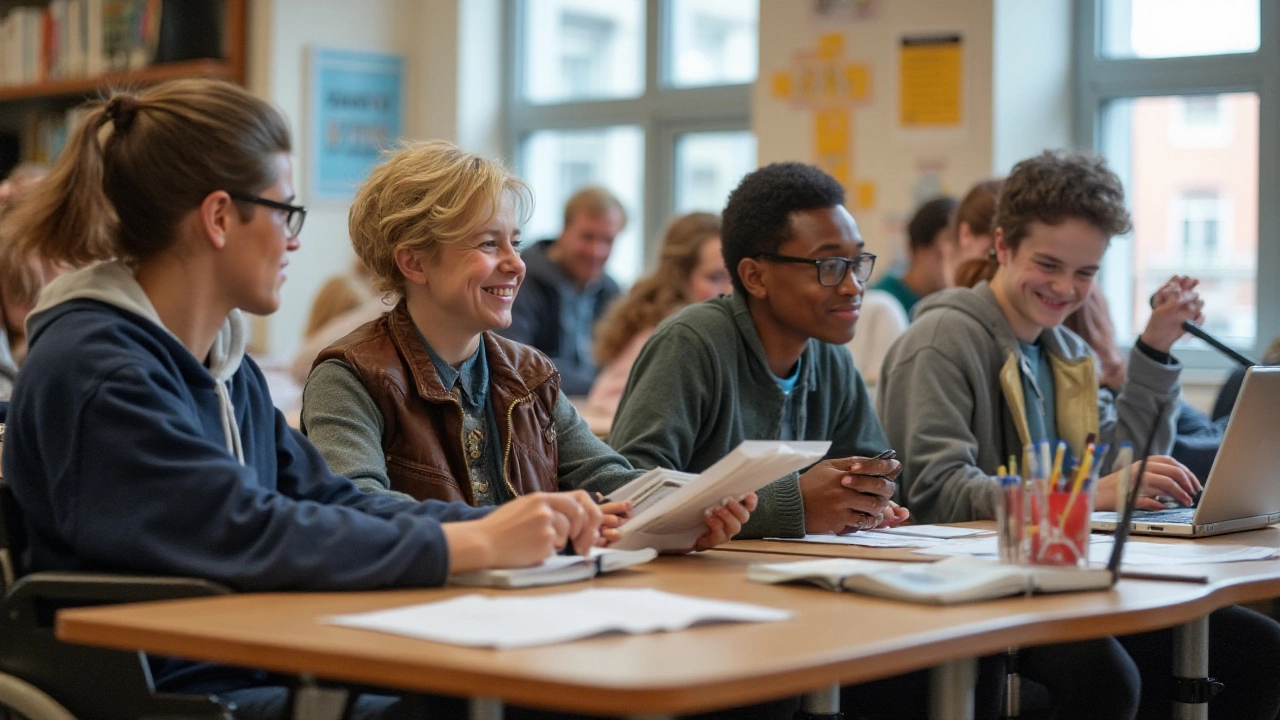Educational Success Tips: Simple Strategies to Boost Learning and Achievement
Want to get better grades, learn faster, or just feel more confident in school? You don’t need a magic formula – a few everyday habits can make a huge difference. Below are the most practical steps you can start using today.
Plan Your Time Like a Pro
The first thing successful students do is schedule their work. Grab a notebook or a phone app and break your week into study blocks. Aim for 45‑minute sessions followed by a 10‑minute break – this keeps your brain fresh and stops fatigue from building up. Write down what you’ll cover each session; the act of writing turns vague intentions into real commitments.
If a big exam is coming up, work backward from the date. List the topics you need to master, then assign a couple of days to each. Seeing the whole timeline at a glance helps you avoid last‑minute cramming and reduces stress.
Active Learning Beats Passive Reading
Reading a textbook line‑by‑line feels endless. Switch to active techniques: ask yourself questions, summarize each paragraph in your own words, or teach the concept to a friend. When you explain something out loud, you quickly spot gaps in your understanding.
Use flashcards for facts, formulas, or vocabulary. The spaced‑repetition method – reviewing cards just as you’re about to forget them – dramatically improves recall. Apps like Anki or simple index cards work equally well.
Another powerful tool is the “Feynman technique.” Write the name of a topic at the top of a page, then write an explanation as if you were teaching a child. When you stumble, go back to the source material and fill the gap. This loop of explaining, checking, and re‑explaining cements knowledge.
Stay Motivated with Small Wins
Big goals can feel overwhelming, so celebrate tiny milestones. Completed a chapter? Treat yourself to a short walk or a favorite snack. These micro‑rewards keep the brain’s dopamine system active, which fuels continued effort.
Track progress visually – a simple checklist or a habit‑tracking chart shows you how far you’ve come. Watching marks accumulate is a natural boost to confidence.
Optimize Your Study Environment
Distractions are the enemy of focus. Choose a quiet spot, turn off unnecessary notifications, and keep only the materials you need on the desk. A clean, well‑lit space signals your brain that it’s time to work.
Some people thrive with background music; if you do, pick instrumental tracks that don’t demand attention. If silence is better for you, consider noise‑cancelling headphones.
Take Care of Your Body and Mind
Physical health directly impacts mental performance. Aim for 7‑9 hours of sleep each night – sleep consolidates memories and clears mental clutter. Regular movement, even a 10‑minute stretch, improves blood flow to the brain.
Stay hydrated and eat balanced meals. Foods rich in omega‑3s, like salmon or walnuts, support cognitive function. When stress spikes, try deep‑breathing exercises: inhale for four seconds, hold for four, exhale for four, and repeat three times.
Use Real‑World Connections
Link new information to things you already know. If you’re studying economics, think about how price changes affect your favorite coffee shop. Making personal connections makes abstract ideas stick.
Find practical applications – a math formula becomes clearer when you see how it calculates a real‑world problem, like budgeting for a trip.
These straightforward habits—planned time blocks, active learning, micro‑rewards, a focused space, healthy body habits, and real‑world links—form a solid foundation for educational success. Try a couple today, adjust what feels right, and watch your confidence grow.
